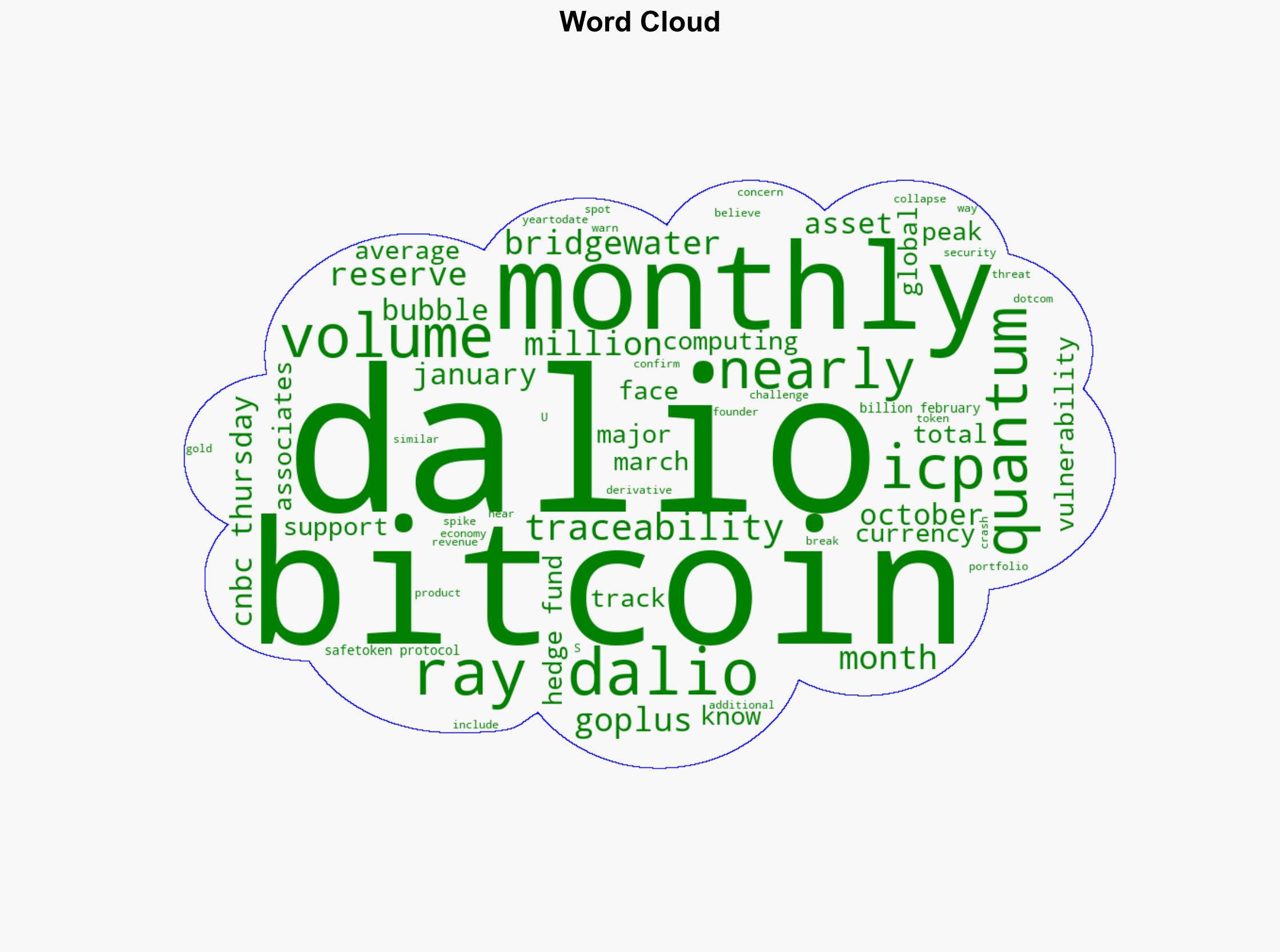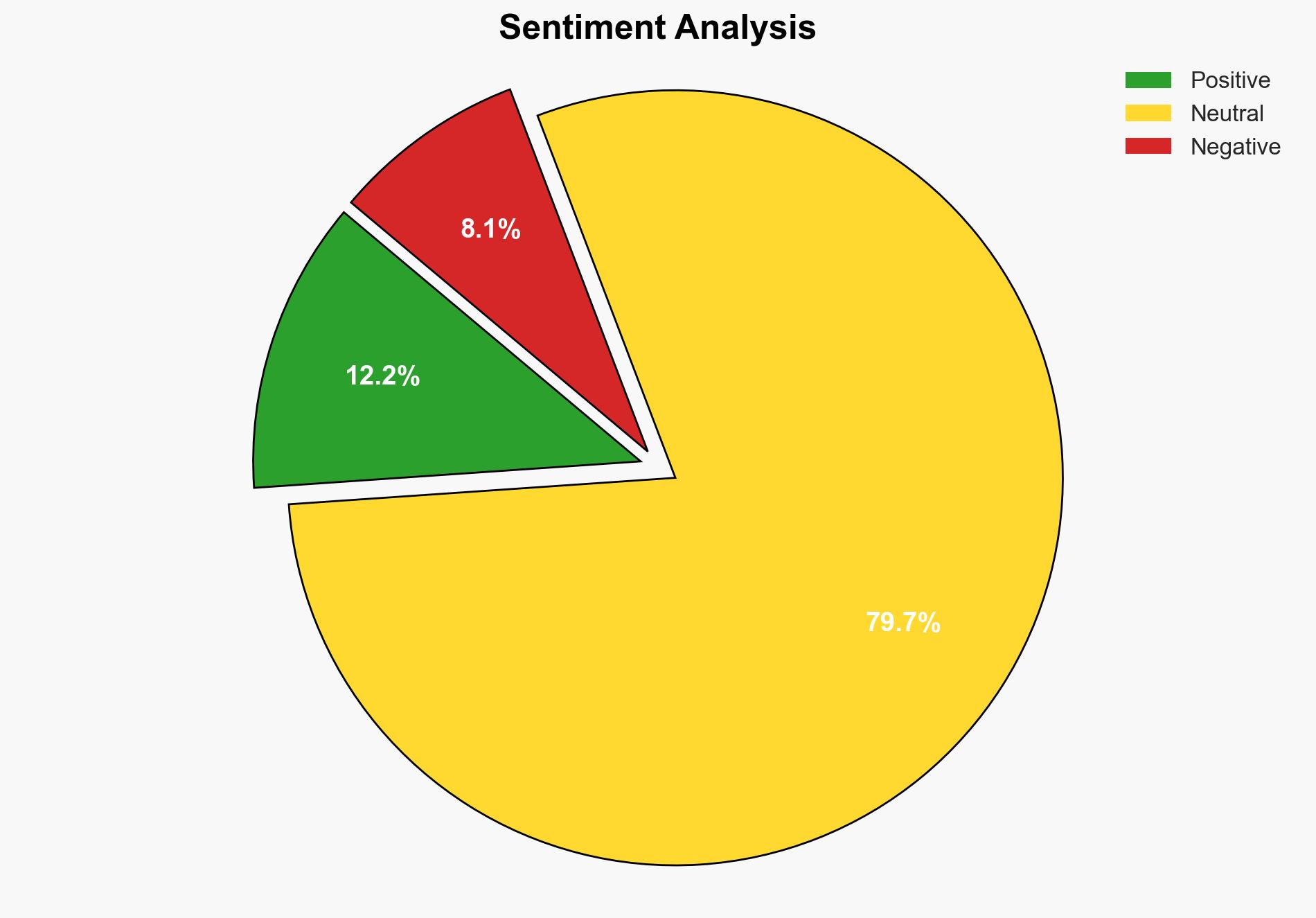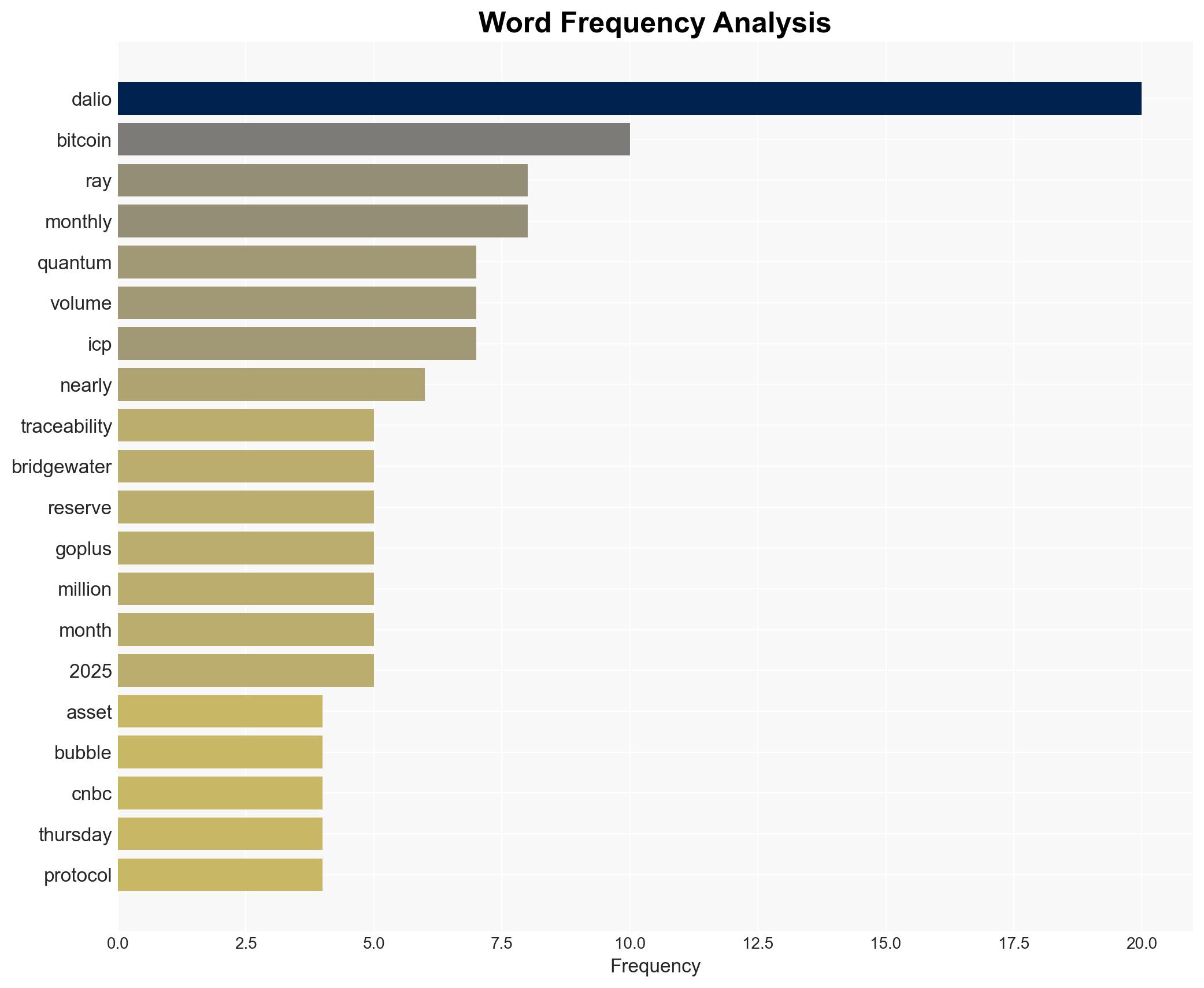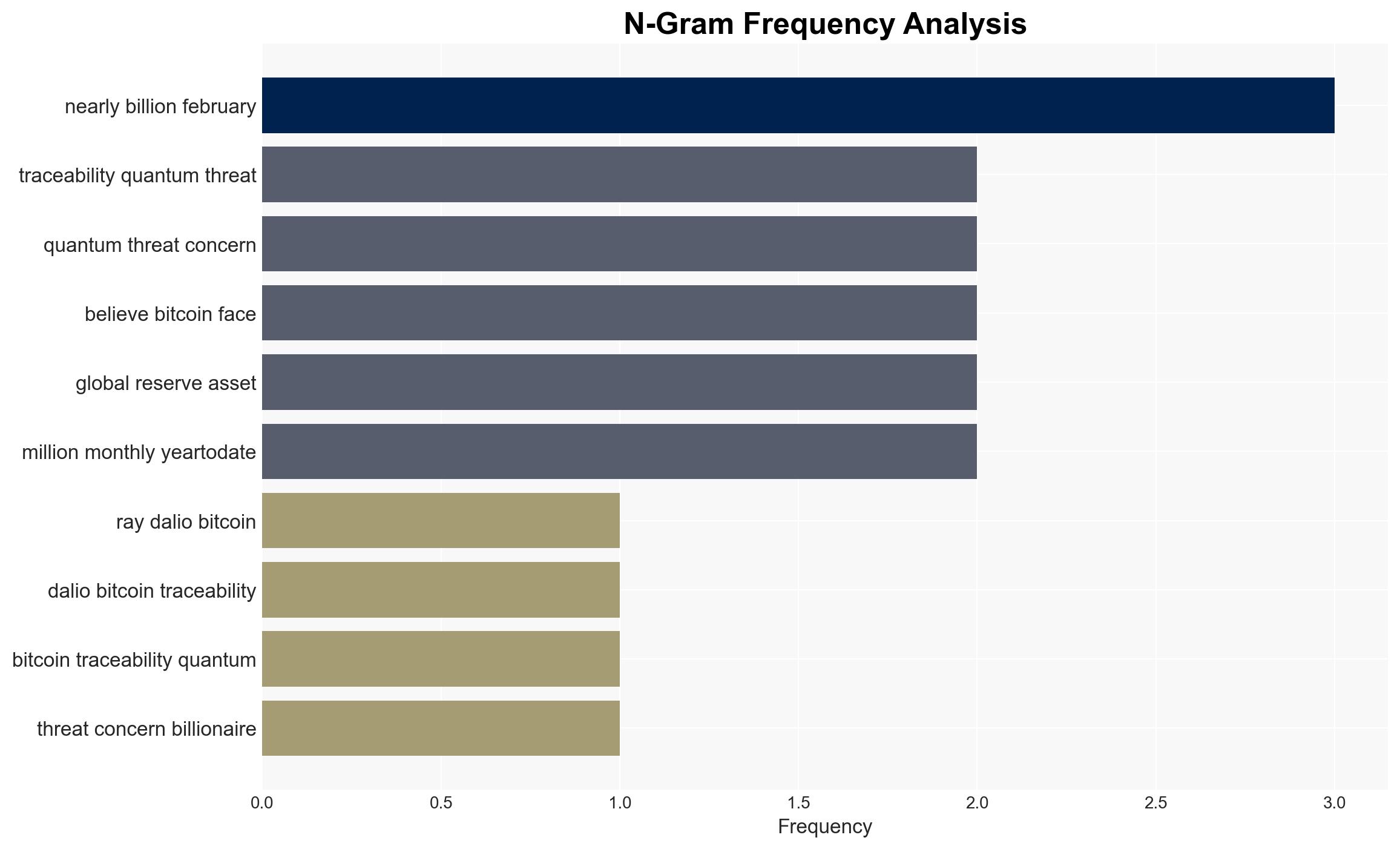Ray Dalio Still Owns Bitcoin but Says Traceability and Quantum Threat Are Concerns – CoinDesk
Published on: 2025-11-20
AI-powered OSINT brief from verified open sources. Automated NLP signal extraction with human verification. See our Methodology and Why WorldWideWatchers.
Intelligence Report:
1. BLUF (Bottom Line Up Front)
Ray Dalio’s concerns about Bitcoin’s traceability and vulnerability to quantum computing present significant challenges to its adoption as a global reserve currency. The most supported hypothesis is that while Bitcoin will continue to be a part of diversified portfolios, its structural issues will prevent it from becoming a major reserve asset. Confidence Level: Moderate. Recommended action includes monitoring advancements in quantum computing and blockchain security to assess future risks and opportunities.
2. Competing Hypotheses
Hypothesis 1: Bitcoin will overcome its traceability and quantum computing vulnerabilities, becoming a widely accepted global reserve currency. This hypothesis assumes rapid advancements in blockchain technology to mitigate these concerns.
Hypothesis 2: Bitcoin will remain a niche asset within diversified portfolios due to its structural challenges, including traceability and quantum threats, preventing it from achieving global reserve currency status. This hypothesis is more likely given current technological limitations and regulatory environments.
3. Key Assumptions and Red Flags
Assumptions: It is assumed that quantum computing will advance to a point where it can threaten blockchain security. Another assumption is that governments will continue to prioritize financial transparency and control.
Red Flags: Over-reliance on speculative indicators like economic bubbles without considering broader economic contexts. Potential bias in Dalio’s views due to his investment in alternative assets like gold.
4. Implications and Strategic Risks
The potential inability of Bitcoin to become a global reserve currency could lead to increased volatility in cryptocurrency markets. Political risks include potential regulatory crackdowns on cryptocurrencies. Cyber risks are heightened by the potential for quantum computing to compromise blockchain security. Economically, failure to address these issues may limit Bitcoin’s growth and integration into mainstream financial systems.
5. Recommendations and Outlook
- Monitor advancements in quantum computing and blockchain security to evaluate potential threats and opportunities.
- Encourage investment in research to develop quantum-resistant blockchain technologies.
- Best-case scenario: Technological advancements mitigate current vulnerabilities, allowing Bitcoin to gain wider acceptance.
- Worst-case scenario: Quantum computing advances rapidly, leading to widespread security breaches and loss of trust in cryptocurrencies.
- Most-likely scenario: Bitcoin remains a niche asset, with ongoing challenges preventing it from becoming a global reserve currency.
6. Key Individuals and Entities
Ray Dalio, Founder of Bridgewater Associates
7. Thematic Tags
Structured Analytic Techniques Applied
- Adversarial Threat Simulation: Model and simulate actions of cyber adversaries to anticipate vulnerabilities and improve resilience.
- Indicators Development: Detect and monitor behavioral or technical anomalies across systems for early threat detection.
- Bayesian Scenario Modeling: Quantify uncertainty and predict cyberattack pathways using probabilistic inference.
Explore more:
Cybersecurity Briefs ·
Daily Summary ·
Support us





